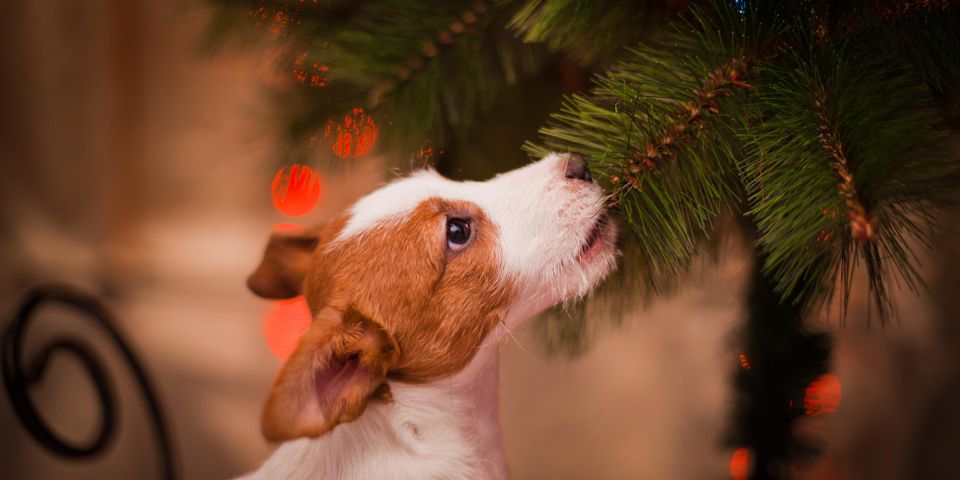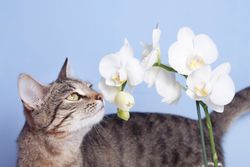
Plants can be an excellent way to add color and warmth to your holiday decor, but they aren’t always festive for pets. When curious cats and dogs nibble on certain seasonal plants, they may also ingest toxins that might be deadly or lead to debilitating symptoms that require treatment from a local veterinarian. To help you keep your four-legged friends safe, here are five poisonous plants to avoid this holiday season, as well as a few beautiful alternatives to consider.
5 Poisonous Holiday Plants Pet Owners Should Avoid
1. Poinsettias
Although poinsettia poisoning is rarely serious, it can cause cats and dogs to encounter a variety of stomach troubles—including diarrhea and vomiting. Rather than putting your pet’s tummy in harm’s way, opt to display nontoxic red flowers that bloom in the winter—such as petunias and roses.
2. Christmas Trees
The needles of pine and fir Christmas trees can be mildly toxic to dogs and cats, causing stomach issues, excess salivation, and abdominal pain. In addition, these sharp needles can block or puncture tissues in the digestive system. If your pet gets thirsty and decides to drink the tree water, they may also be ingesting dangerous fertilizers and bacteria. To avoid these risks, it may be safer to put up an artificial tree.
3. Lilies
 While the level of toxicity can vary from species to species, lilies are generally considered unsafe for pets. In dogs, these flowers may cause stomach problems and tremors. Cats, on the other hand, are much more sensitive to the plant and can develop life-threatening kidney failure if they consume lilies. For a similarly glamorous floral arrangement, veterinarians recommend substituting lilies with orchids.
While the level of toxicity can vary from species to species, lilies are generally considered unsafe for pets. In dogs, these flowers may cause stomach problems and tremors. Cats, on the other hand, are much more sensitive to the plant and can develop life-threatening kidney failure if they consume lilies. For a similarly glamorous floral arrangement, veterinarians recommend substituting lilies with orchids.
4. Holly
Characterized by bright red berries and spiky green leaves, holly is a popular winter plant that’s commonly found in wreaths. If dogs and cats eat these berries, they can experience severe gastrointestinal distress that requires veterinarian intervention. If swallowed, the spiky leaves may also cause injury to the animal’s mouth and throat. To achieve the same visual without the toxicity, consider using autumn olive or hawthorn as a safe alternative to holly.
5. Mistletoe
For humans, hanging mistletoe is a signal to share a seasonal kiss. If ingested by cats and dogs, this holiday greenery can lead to digestive issues, low blood pressure, irregular heart rate, and breathing problems. To minimize the risk of poisoning, opt to hang sprigs of Christmas cactus instead of mistletoe.
If you believe your pet has consumed a poisonous plant, Thompson Animal Medical Center offers 24-hour emergency vet services in the La Crosse, WI, area. This provider can quickly assess symptoms and provide prompt treatment to minimize the effects of toxic plants. They also offer state-of-the-art surgical services to care for intestinal blockages and other internal health dangers. Visit this veterinarian online to learn more about their comprehensive services. To request emergency care, call (608) 788-8820 to speak with an animal hospital staff member.
About the Business
Have a question? Ask the experts!
Send your question

